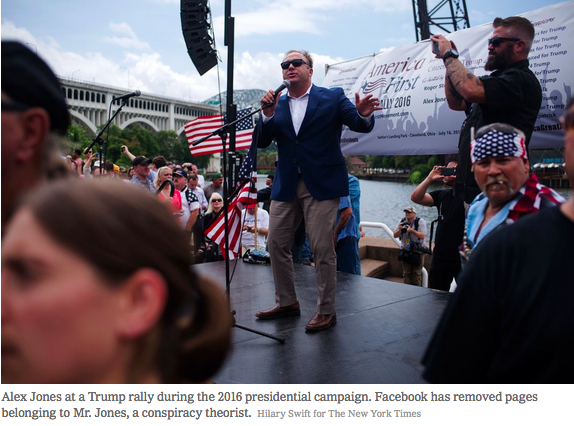To Americans, Facebook’s Alex Jones problem might seem novel, even unprecedented.
When does speech become unsafe? When can it be limited? Should those decisions be up to a private company at all? And if a company shies away from acting, as Facebook did with Mr. Jones until Apple moved first, where does that leave the rest of us?
But to activists and officials in much of the developing world, both the problem and Facebook’s muddled solutions will be old news.
Before there was Alex Jones, the American conspiracy theorist, there was Amith Weerasinghe, the Sri Lankan extremist who used Facebook as his personal broadcast station.
Mr. Weerasinghe leveraged Facebook’s newsfeed to spread paranoia and hatred of the country’s Muslim minority. He enjoyed near-total freedom on the platform, despite repeated pleas from activists and officials for the company to intervene, right up until his arrest on charges of inciting a riot that killed one Muslim and left many more homeless.




